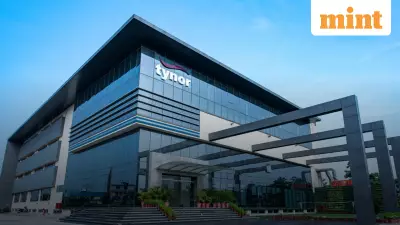
India is embarking on the most significant overhaul of its labour laws in decades with the implementation of four new Labour Codes, a move that promises to dramatically ease compliance burdens for the country's vast Micro, Small, and Medium Enterprises (MSME) sector while expanding worker protections.
Balancing Compliance Relief with Cost Concerns
The landmark reforms, which consolidate 29 central labour laws into four comprehensive codes, come as a response to years of appeals from smaller businesses struggling with regulatory complexity. While expanded social security coverage, enhanced safety mandates, and increased digitization of human resource management are expected to raise employee costs, industry representatives believe these increases will be substantially offset by reduced compliance burdens.
Vinod Kumar, President of India SME Forum, emphasized that "the new Labour Codes answer our long-standing demands to ease compliance issues." He noted that well-run MSMEs already following core regulations will benefit from a more level playing field and reduced regulatory ambiguity.
Key Provisions and Implementation Timeline
The Parliament approved the Code on Wages in 2019, followed by the three remaining codes covering industrial relations, social security, and occupational safety, health, and working conditions in 2020. The government is expected to pre-publish draft rules within a week, allowing 45 days for public comments before potential implementation of industry-related provisions by April 1, 2026.
The reforms introduce several groundbreaking changes, including:
- Aadhaar-linked Universal Account Numbers for portable welfare benefits
- Definition of a National Floor Wage
- Mandatory timely wage payments
- First-ever legal recognition of gig and platform workers
Industry Perspectives on Cost Impact
The Association of Indian Entrepreneurs (AIE) acknowledged the Codes as major reform but expressed concern about rising operational costs for MSMEs already grappling with high inflation and market uncertainties. KE Raghunathan, National Chairman of AIE, warned that "the complexities of these rules may not be manageable for micro and small units who lack dedicated HR or legal teams."
However, Suchita Dutta, Executive Director of Indian Staffing Federation, provided a different perspective, estimating only a 5-7% short-term cost increase while highlighting the substantial hidden costs of current non-compliance. "The court cases, legal notices, delays, penalties that have to be paid – these run into multiples of crores," she revealed.
Formalization and Long-Term Benefits
Industry experts point to significant long-term advantages, including greater formalization of India's second-largest employment sector after agriculture. Mandatory appointment letters, clear wage payment rules, and better-defined thresholds for contract labour and retrenchment are expected to reduce disputes and encourage proper employment practices.
The government has also raised the threshold for contract labour licensing from 20 to 50 workers, freeing small contractors from what it describes as "excessive regulation" to encourage business growth.
Chandrakant Salunkhe, who heads SME Chamber of India, termed the Labour Codes "industry and MSME friendly" while calling for additional government support through tax rebates and wage assistance to help small businesses transition smoothly.
As states develop their implementation guidelines, the AIE has urged a "facilitative, non-punitive approach" during the transition period to prevent unintended consequences for job creation and entrepreneurship.





